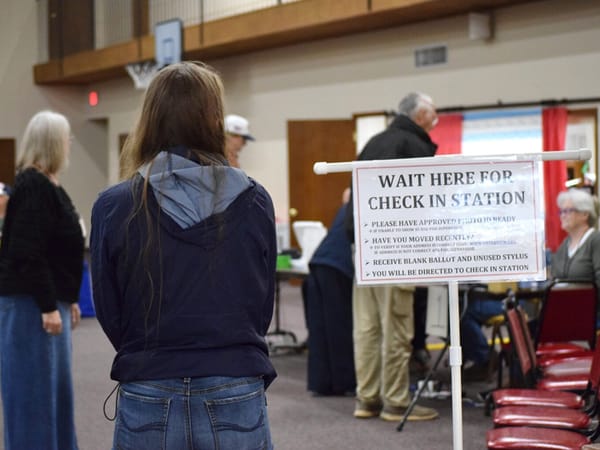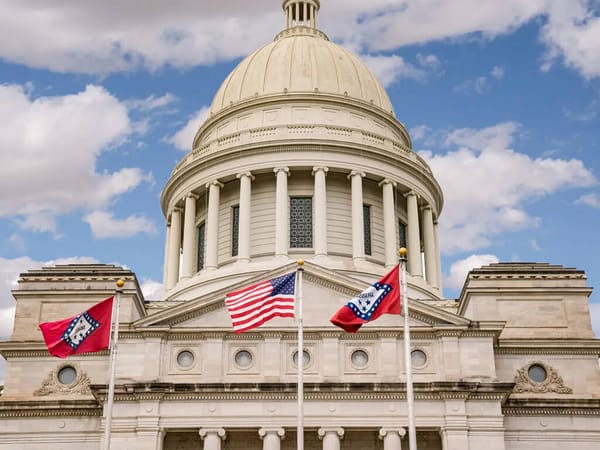Immigration Enforcement, in the Hands of the Arkansas Guard?
The Arkansas National Guard has applied to join ICE’s 287(g) program, seeking authority to make immigration arrests under the task force model. The request follows new state legislation and could expand immigration enforcement powers in Arkansas.

The Arkansas National Guard is waiting on a decision that could reshape its responsibilities in the state. Earlier this month, records released by U.S. Immigration and Customs Enforcement confirmed that the Guard has applied for federal authority to conduct immigration arrests.
The request was submitted under the “task force model” of the 287(g) program, a Department of Homeland Security initiative that allows state and local agencies to work with ICE in enforcing immigration law. If approved, Guard members who complete the required training would gain limited immigration enforcement powers, a role that extends far beyond the Guard’s traditional mission.
In recent months, National Guard units elsewhere have been drawn into immigration enforcement. President Donald Trump authorized deployments to California and Washington, DC, a move that unsettled immigrant communities and raised the prospect of broader Guard involvement nationwide.
A Push from State Lawmakers
The Guard’s request came soon after new legislation reshaped immigration policy in Arkansas. Lawmakers passed the Defense Against Criminal Illegals Act, also known as Act 426, which requires the Arkansas State Police, the Department of Corrections, and county sheriffs’ offices to seek immigration enforcement authority through the “warrant service officer” model of the 287(g) program. The law also prohibits the creation of sanctuary cities anywhere in the state.
Although the National Guard was not named in Act 426 and its soldiers do not typically perform law enforcement duties, the Guard joined the Arkansas State Police and several sheriffs’ offices in applying for broader powers under the “task force model.” That step went beyond the requirements of the legislation.
Act 426 further expanded the state’s ban on sanctuary cities to cover all unincorporated communities and counties. It also directed Arkansas law enforcement agencies to participate in federal programs that deputize them to help ICE detain and deport undocumented migrants housed in local jails and state prisons.
Immigration Arrests on the Rise
Data obtained by DeportationData.org through federal Freedom of Information Act requests show that immigration authorities have made more than 1,500 arrests in Arkansas this year.
As the state’s immigrant population grows, that number has become a flashpoint in political debate. In Arkansas’s conservative environment, concerns often intensify following crimes linked to undocumented migrants. Supporters of stricter enforcement have rallied behind President Donald Trump’s immigration agenda, portraying it as essential to public safety.
Governor Sarah Huckabee Sanders has aligned state policy with Trump’s approach, introducing legislation earlier this year that would impose harsher penalties on undocumented migrants convicted of crimes in Arkansas.
To date, eleven jurisdictions in the state have been granted enforcement authority under the federal 287(g) program. Under the warrant service officer model, trained local officers can serve ICE administrative warrants on people already in local jails. The jail enforcement model allows agencies to identify and process individuals believed to be in the country unlawfully after they are booked into jail.
The task force model goes even further, giving trained officers the power to stop, question, and arrest people in the community based solely on suspected immigration violations.
Debate Over the Task Force Model
The task force model was suspended during President Barack Obama’s administration but brought back under President Donald Trump following his return to office in January 2025.
The American Immigration Council, a nonprofit organization based in Washington, DC, that advocates for immigrants, has strongly criticized the model, pointing to what it calls a “track record of racial profiling and harm.” In states such as California, it has been challenged in court, with opponents arguing that it promotes discriminatory policing and heightens fear in immigrant communities.
Supporters take a different view, maintaining that the task force model strengthens immigration enforcement by extending federal authority to local agencies and giving them greater capacity to identify and arrest individuals suspected of violating immigration laws.
For now, Arkansas’s future with the program remains unresolved. ICE has listed the National Guard’s application as pending since August 14, without indicating when the request was filed or when a decision might be made. Observers note, however, that the chances of approval appear strong.





